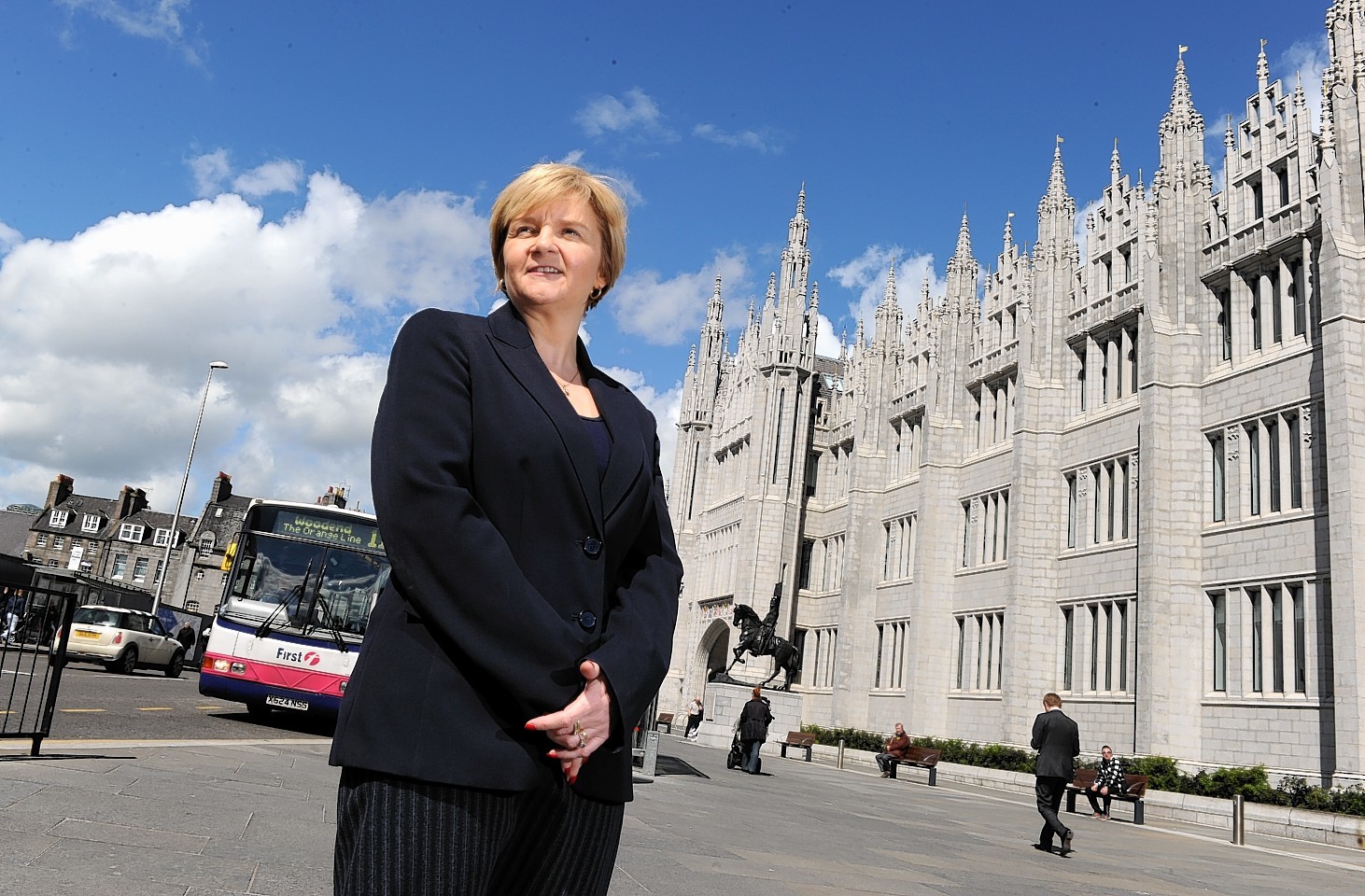Aberdeen’s Labour-led council administration prioritised education, social care and a living wage for staff in passing its third “no cuts” budget in three years yesterday.
Leader Jenny Laing also put the future of the struggling North Sea oil and gas sector at the heart of the coalition’s plans, pledging to “leverage whatever we can” via a City Deal to anchor the industry in the region for the long term.
Members voted through the authority’s general revenue fund budget and the non-housing capital programme by 22-14 in a meeting lasting more than four hours.
Mrs Laing said the administration had to navigate “significant local and national issues” while continuing to offer support to citizens and plan ahead.
She said: “Once again, we have lived within our means and this budget is balanced with no requirement for additional savings in the short term.”
A sum of £2.93million carried over from 2014/15 will go towards a redesign of social work services for children and families to reflect a 10.5% increase in demand in five years.
The council will seek to help address rising school rolls and difficulties in recruiting and retaining teachers by setting funds aside for 25 posts from August 2016.
Mrs Laing said the £398million five-year capital plan, coupled with the £2billion City Deal bid, meant the administration would “deliver on its vision” for Aberdeen to benefit “generations to come”.
Key projects in the five year plan include a new £37million academy for Cove, a £13million primary at Stoneywood, a £4million investment in the replacement Burnside social care facility and £33million in recycling infrastructure.
More than £24million is also earmarked over the next five years for road improvements and street lighting while a controversial revamp of the art gallery will go ahead.
Mrs Laing also defended the hotly-disputed Marischal Square development, insisting that it would bring “much needed” hotel and leisure facilities and generate £100million for council coffers in the next 35 years.
Council tax rates will remain frozen as per an agreement with Scottish Government, while £11.3million will be kept in reserve to cope with “unexpected and unplanned” problems ahead with a £53million shortfall looming.
Staff will be given a 1% pay rise, while Mrs Laing said the “proud” commitment to a living wage will mean that about 700 staff will receive an hourly uplift.
The SNP put forward an alternative budget with a radical £10million plan to buy and improve buildings on Union Street to revitalise the city’s ailing main thoroughfare.
Group leader Callum McCaig outlined proposals for a £750,000 spend on early years education in regeneration areas and a £100,000 teacher training incentivisation scheme to tackle problems with recruiting and retaining staff in the city.
Parking charges would be raised and the art gallery revamp would be scrapped in order to fund the commitments.
However, the Nationalists said they would invest £1million to combat bed blocking problems.
A further £1million would have been diverted by the SNP from reserves to protect council tenants affected by UK Government welfare reforms and £4.2million would be spent on affordable housing for “key workers”.
The Liberal Democrats suggested spending £2million on road, pavement and street lighting repairs to resurface more than five miles of roads.
Group leader Ian Yuill also said he would put £290,000 towards equipment and staff for gritting pavements and fixing an extra 6,000 potholes.
The Lib Dems also wanted to increase education spending by £200,000 for books and materials in schools.
The Lib Dem revenue fund and capital plan amendments fell in 14-5 and 14-6 votes respectively against the SNP plans, which were both then defeated by the administration 22-14.
